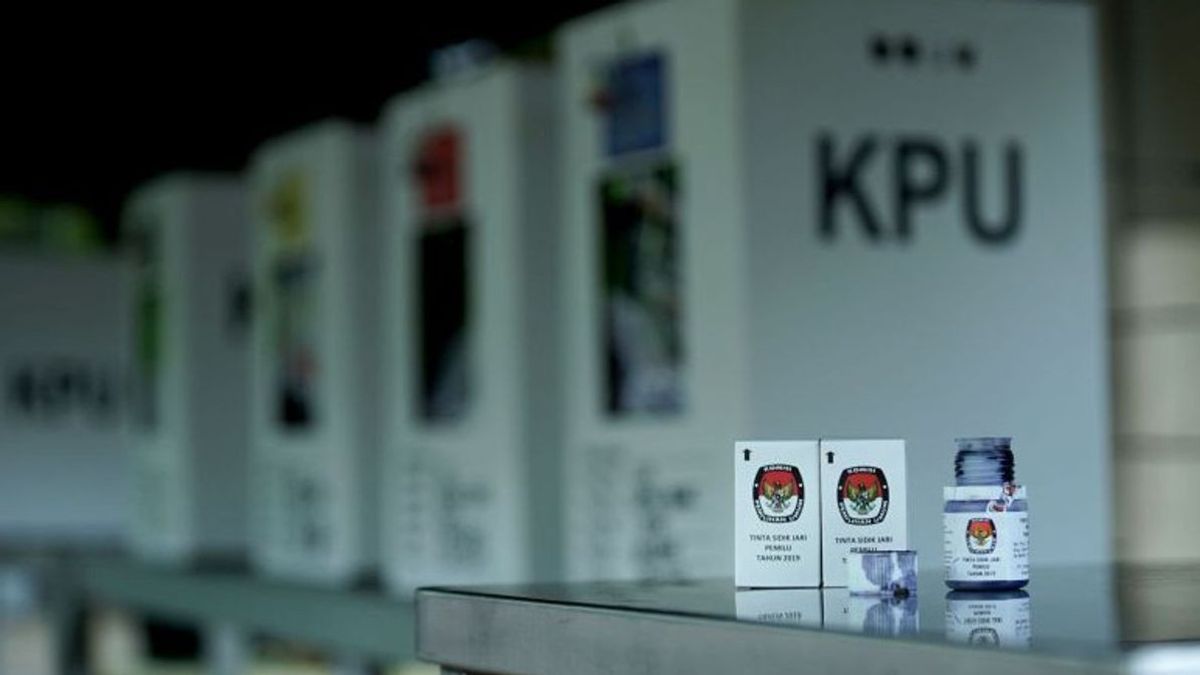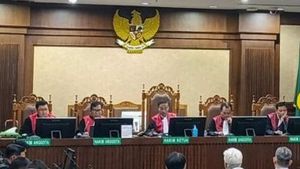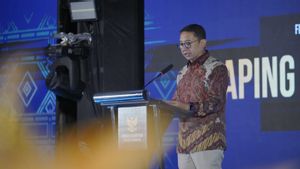JEMBER - University of Jember political observer Agung Purwanto assessed that the discourse on postponing the 2024 Simultaneous General Elections was an excuse for political parties to increase their bargaining position in the 2024 Presidential Election, and the urgency of the postponement has been questioned.
"The reason for the ongoing COVID-19 pandemic has been refuted by the successful implementation of the 2020 General Election, which was held by implementing health protocols," he said, quoted by Antara, Thursday, March 3.
According to him, the reason for the decline in the economy is also questionable, because throughout 2021, the Indonesian economy recorded an average growth of 3.69 percent.
"This means that the reason for the postponement of the 2024 Simultaneous Elections presented by political party elites is not the real reason, but there is a political intent in the proposal," he said.
Observing the leadership of the proposing political parties, namely the National Awakening Party (PKB), Golkar Party, and the National Mandate Party (PAN), it can be said that the political parties are members of the ruling party coalition (ruling party).
However, all three are in the middle power position, while the major power is held by the Indonesian Democratic Party of Struggle (PDIP).
"Simply put, the three political parties only have the opportunity to be vice presidential candidates with presidential candidates from major powers, so that two years is deemed insufficient to conduct political lobbying and increase their bargaining position to get a "safe position" as vice president," he said.
Agung said that in fact two years was sufficient if nothing crucial happened to the ruling party coalition's major power. The electability of the dynastic model planned by the major powers of the governing party coalition with PKB and Golkar in it, is not in line with the reality of voter behavior on the ground.
"The results from 25 survey institutions regarding the electability of presidential candidates stated that 17 survey institutions appointed Prabowo Subianto as the highest chosen by respondents," said the Unej FISIP lecturer.
Meanwhile, Ganjar Pranowo from the major power coalition of the highest governing party was chosen by respondents from 4 survey institutions and that was less than 20 percent, even though the major power in the governing party coalition wanted dynastic politics, meaning not Ganjar Pranowo.
"It will be difficult for the middle powers to increase the electability of their party leaders on the one hand and are faced with having to work with presidential candidates who have less strong electability," he said.
He explained that the most pragmatic idea is swing in coalition. The electability of the chairman of the Golkar Party as well as the electability of the chairman of the PKB Party will be the capital in the bargaining position of the party chairman who is also the major power of the former opposition coalition.
"Well, in trying to find a way to 'pair two legs' between being in the governing party coalition or pragmatically swinging, that two years is not enough," he said.
The English, Chinese, Japanese, Arabic, and French versions are automatically generated by the AI. So there may still be inaccuracies in translating, please always see Indonesian as our main language. (system supported by DigitalSiber.id)













